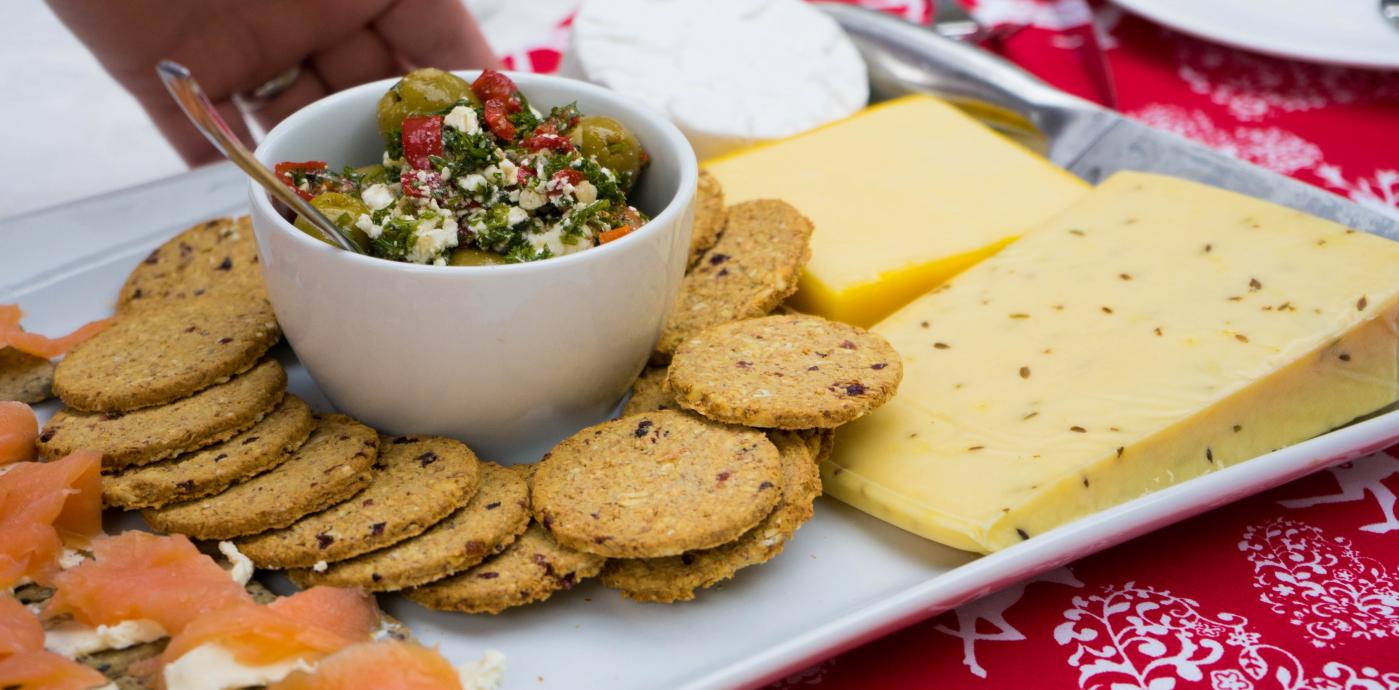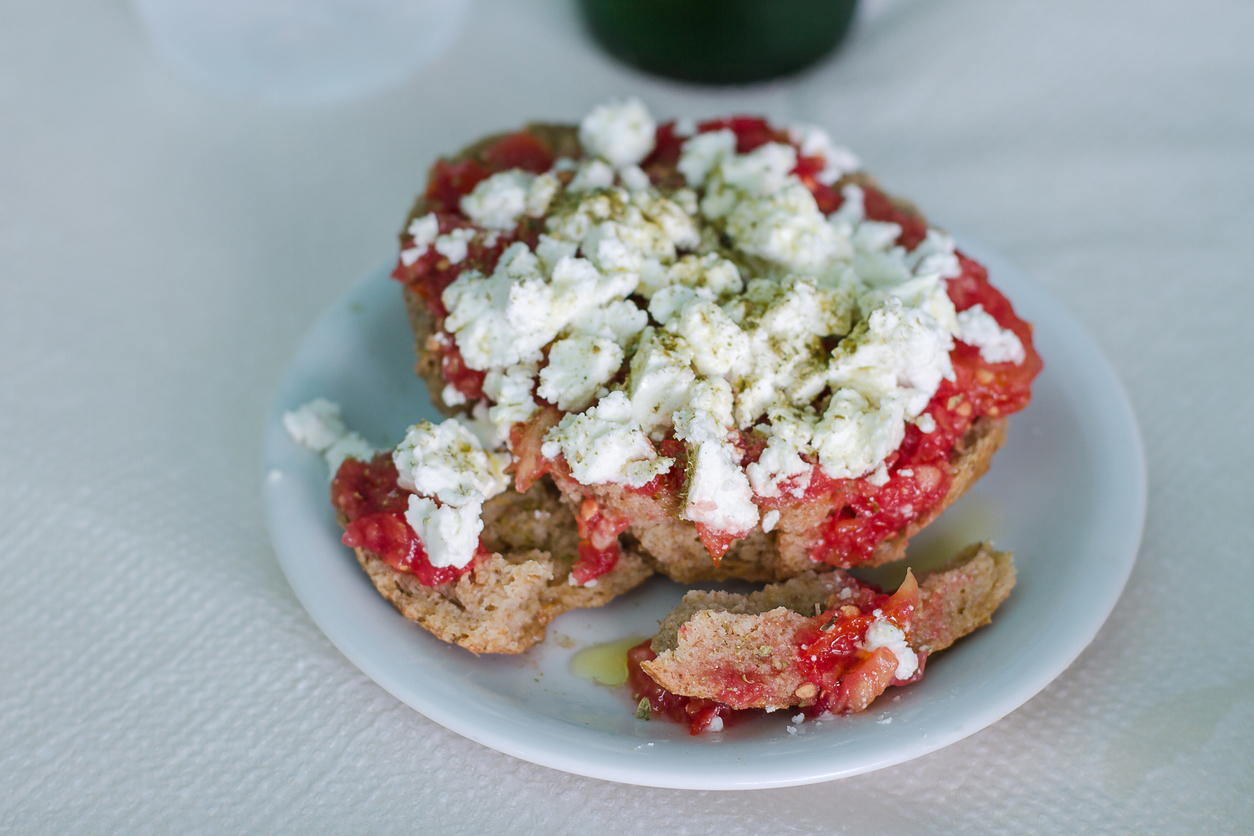Our ingenious, intuitive ancestors discovered fermentation as a means to preserve food. Prior to refrigeration, fermentation prevented spoilage, extended shelf-life, and retained nutrients in food during long, cold winters. But over time, we’ve come to learn that fermented or cultured foods are also good for us, thanks to beneficial microorganisms known as probiotics. By eating an assortment of fermented foods, you can promote the growth of a wide range of beneficial bacteria that may help improve digestion, fight infection, and even enhance your immune function. Luckily, the Mediterranean diet is rich with these ancient, gut-friendly foods.
When you think about fermented or cultured food in the Mediterranean, Lactobacillus-containing yogurt may immediately spring to mind. Yogurt is milk that has been fermented with live starter cultures. “Greek” (strained) yogurt has been all the rage in recent years, but another form of yogurt popular in the Mediterranean is labneh, in which excess liquid, whey, is strained until it forms a thick cheese-like consistency. Yogurt mixed with cucumber, garlic and salt forms the basis of tzatziki, a popular condiment found all over Greece. Kishk is a Lebanese ferment of yogurt mixed with bulgur wheat; in Greece, the mixture is referred to as trahana. Kishk and trahana are traditionally dried after fermentation and then used to flavor stews and soup.
Cheese is another important fermented milk product enjoyed in moderate amounts on the Mediterranean diet. Almost all traditional cheeses are made from milk, natural cultures, and not much more, but they take on many diverse flavors. A sprinkling of feta cheese from Greece can add a briny flavor to Mediterranean dishes, while Parmigiano-Reggiano from Italy can impart a richness and umami flavor to your cooking.
Did you know there are fermented breads? Bread baking using a ‘wild’ yeast sourdough starter is an integral part of the fermentation process and adds a complex sour flavor to bread. When dough is given the chance to slowly ferment, hard-to-digest gluten is broken down into a more easily digestible form. Starting a sourdough culture requires nothing more than mixing flour and water in a bowl and leaving it on the counter to ferment, capturing the wild yeast that naturally exist in the air. Maintaining a sourdough requires regular “feedings” with flour and water.
Vegetables have long been part of the fermentation process. Vegetables ferment best with a simple brine of salt dissolved in water. Over time, the salt draws out water from the vegetables and serves as a protection against the growth of undesirable microorganisms, while promoting the growth of desirable strains like Lactobacilli. While we may immediately think of cucumber pickles or sauerkraut, just about any vegetable can be fermented. Olives and capers are considered some of the earliest vegetable ferments in the Mediterranean. Olives and capers are cured prior to eating due to their extremely bitter taste.
Keep in mind that not all pickled foods are fermented. Pickled products that have been preserved in some type of acid (e.g., lemon, wine, or vinegar) do not offer the probiotic benefits of those that are naturally fermented.
Preserving fish has also been an important practice of Mediterranean culture. Garum was a fish sauce made from preserved fish, used as a condiment in the cuisines of ancient Greece, Rome, and Byzantium. It is believed to have resembled the fermented anchovy sauce colatura di alici that’s still produced today in Campania, Italy. Salt-curing anchovies, bottarga (fish roe) and lakerda (bonito steaks) is another widely used means of preserving fish.
Lastly, we can’t talk about the fermented foods of the Mediterranean without mentioning wine – fermented grapes! Historically, wine has been an important part of religious rituals, social relationships, and celebrations in the Mediterranean. Sensible guidelines tell us that wine can be part of meal times and social gatherings in moderation, consumed by healthy adults to enhance the taste of food and to add to the enjoyment of everyday living. In addition to wine, mead (fermented honey), cider (fermented apple juice), and ginger beer are some of the oldest and, perhaps most enjoyed products of fermentation.
Want biweekly Med Diet information and recipes in your Inbox? Sign up for our Fresh Fridays newsletter by clicking the Subscribe button at the bottom of this page!
Join the Make Every Day Mediterranean Club Facebook group for additional information and support.








